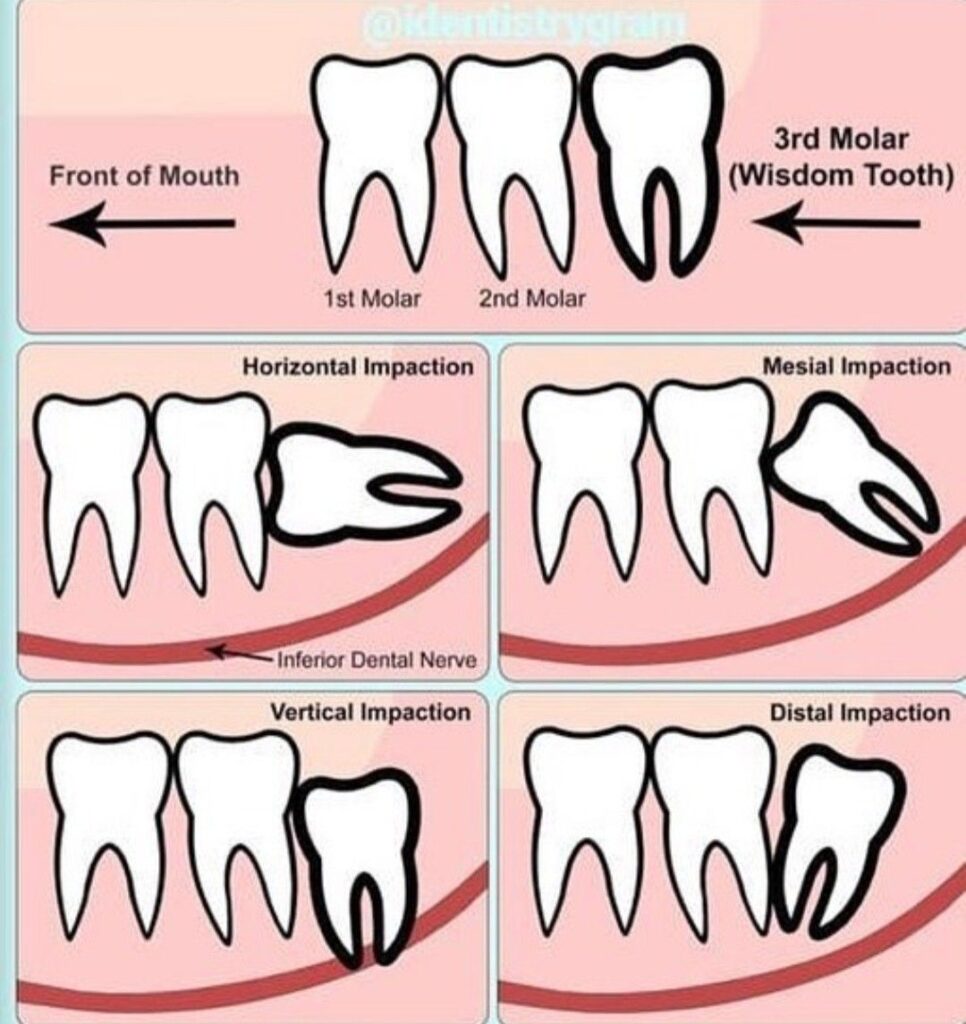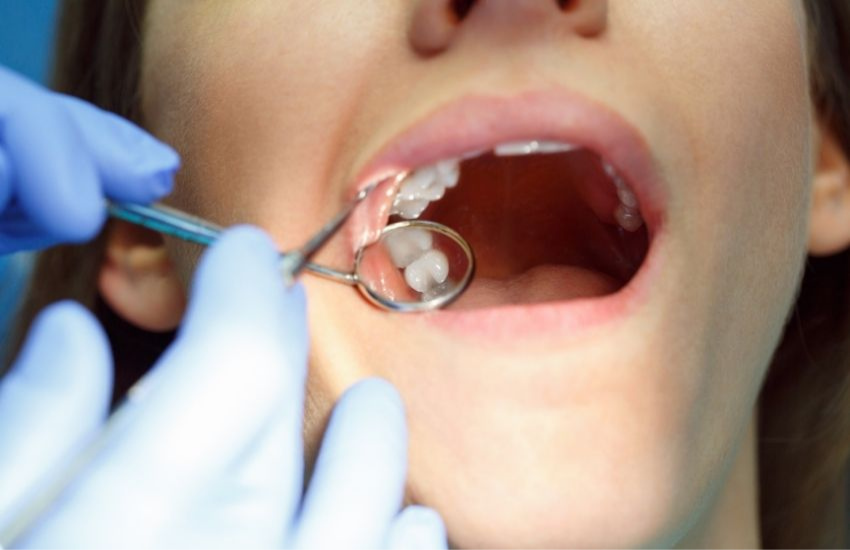Braces are a necessary and beneficial part of many people’s lives, but getting them can be a daunting experience for many people, even those who don’t have wisdom teeth. For those who do, it can present an additional challenge.
Prior to getting your braces, your orthodontist will assess your wisdom teeth. If it is deemed that it may cause potential overcrowding and affect your orthodontic treatment, your orthodontist will recommend having them removed before the treatment. This helps to prevent any potential issues in your orthodontic treatment that may arise due to the growth and positioning of the wisdom teeth.
Tthe decision to remove wisdom teeth is typically based on whether they are causing problems or are likely to cause problems in the future. If your wisdom teeth are not causing any immediate problems and are coming in properly, you may not need to have them removed.
What are Wisdom Teeth?
Wisdom teeth, also known as third molars, are the last set of teeth to emerge in the mouth, usually appearing around the age 17 and 25. They are called “wisdom teeth” because they typically emerge at a time when a person is considered to be more mature and wise.
Wisdom teeth are believed to have evolved in early humans as a way to grind and chew tough and fibrous plants and uncooked meat. However, as our diet has changed over time and we have developed tools to help us process food, the need for wisdom teeth is no longer required.
Today, about 20-25% of the human population is born with 1 to 3 wisdom teeth while 35% is born without any wisdom teeth at all. I fact, some scientists that the growing percentage of people born without wisdom teeth is an evolutionary response as there is no longer a survival need for it.

For some people, wisdom teeth can be a source of discomfort and problems, and this happens due to several issues.
- Crowding: Wisdom teeth may not have enough room to come in properly, which can cause pain, crowding of other teeth, and other problems.
- Impaction: Wisdom teeth may be “impacted,” which means they are stuck in the jawbone or gum tissue and cannot come in properly. This can cause pain, infection, and other problems.
- Decay: Due to the location of the wisdom teeth, they are more difficult to clean and are at higher risk of tooth decay and other dental problems than the other teeth are.
A paper conducted in 2007 determined that only 20% of the population with wisdom teeth need to be removed to prevent complications. However, it is estimated that over 85% of the people in the United States have had their wisdom teeth removed.
Your dentist or oral surgeon will be able to determine if it is necessary to remove your wisdom teeth based on a thorough examination and X-rays. In general, it is best to have wisdom teeth removed before they cause any problems to your gums and teeth, although this may not always be necessary.
Is It Necessary To Take Out Wisdom Teeth for Braces?
While it is recommended for you to remove your wisdom teeth before getting braces, it is not necessary to do so. This happens when the orthodontist have assessed and determined that there is room for your wisdom teeth to erupt, or that the erupted wisdom teeth will not affect the orthodontic treatment.
That said it is important to consider the timing of both treatments. If you are already wearing braces and your wisdom teeth start to come in, your orthodontist may need to make adjustments to your orthodontic treatment to accommodate the growth and movement of your wisdom teeth. This may involve removing certain bands or wires and adding others, or simply loosening the braces to allow for more space.
As such, proactive extraction of the wisdom teeth is encouraged to prevent any disruption to your orthodontic treatment, as well as to make space for the surrounding teeth to shift.

If you are having your wisdom teeth extracted, you are advised to have it removed at least one month before getting the braces.This is because the area where your wisdom teeth were located will be less inflamed and easier to adjust.
Can I Remove My Wisdom Teeth With Braces?
Removing wisdom teeth with braces is possible, although it may require more planning and care than without.
The position of your wisdom tooth and the type of braces you have will determine the complexity of the extraction. When removing your wisdom tooth while wearing braces, orthodontists must ensure that the other teeth are not affected by the procedure. Hence, the timing of the wisdom tooth extraction may need to be adjusted to coincide with specific stages of the orthodontic treatment, and additional precautions may need to be taken to ensure the braces do not interfere with the extraction process.
Depending on how much space there is in your mouth or jawbone, an oral surgeon may need to adjust your braces temporarily in order to remove your wisdom teeth. This may involve opening up sections of wire slightly to give them more room to work with. It is important that any adjustments made do not interfere with future treatments such as retainer use or further tooth movement post-extraction.
It is important to consult with an orthodontist who can determine the best course of action for your dental health and treatment with braces based on your specific circumstances.. They will be able to evaluate your oral health and determine whether or not it is necessary to remove your wisdom teeth before starting treatment. In some cases, it may be necessary to remove the wisdom teeth before beginning orthodontic treatment, while in other cases, it may be possible to wait until the treatment is complete.







